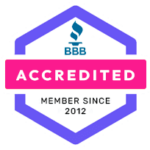Menu
Maximizing Success: The Ultimate Guide to Small Business Web Hosting Solutions

In today’s digital age, having a robust online presence is vital for the success of any small business. One of the foundational elements of your online strategy is choosing the right web hosting service. This guide will walk you through everything you need to know about small business web hosting solutions, ensuring you make informed decisions that set your business up for success.
Why Small Business Web Hosting Matters
Small business web hosting is more than just a place to store your website; it’s the backbone of your online operations. A reliable web hosting service ensures your website is always accessible, loads quickly, and provides a secure environment for your visitors. In a competitive market, these factors can significantly influence your bottom line.
What is Small Business Web Hosting?
Small business web hosting refers to hosting services tailored specifically to meet the needs of small to medium-sized enterprises (SMEs). These services typically offer packages that include domain registration, website building tools, email hosting, and customer support, all designed to help small businesses establish a strong online presence without requiring extensive technical knowledge.
Key Features to Look for in Small Business Web Hosting
Choosing the right hosting provider involves assessing several key features that can impact your website’s performance and overall user experience. Here are the most critical aspects to consider:
1. Reliability and Uptime
When your website is down, you could be losing customers and revenue. Look for hosting providers that offer at least a 99.9% uptime guarantee. This ensures your site remains operational and accessible to your audience at all times.
2. Loading Speed
Website speed is crucial for both user experience and SEO. Slow-loading websites can frustrate visitors and lead to higher bounce rates. Opt for hosting services that use SSD storage, CDN integration, and other performance-enhancing technologies.
3. Security Features
Security should be a top priority for any small business. Look for hosting plans that offer SSL certificates, regular backups, DDoS protection, and malware scanning. These features help protect your site and customer data from cyber threats.
4. Customer Support
Reliable customer support is essential, especially if you’re not a tech expert. Choose providers that offer 24/7 customer support via multiple channels such as phone, chat, and email. This ensures you can get assistance whenever you need it.
5. Scalability
As your business grows, your hosting needs may change. Choose a hosting provider that offers scalable solutions, allowing you to upgrade your plan seamlessly as your traffic and resource requirements increase.
6. Cost-Effective Plans
While budget is a key consideration for small businesses, it’s essential to balance cost with the features that meet your needs. Many providers offer competitive pricing, but make sure to read the fine print for any hidden fees or long-term contracts.
Top Small Business Web Hosting Providers
1. Bluehost
Bluehost is a popular choice among small businesses due to its user-friendly interface and comprehensive features. They offer reliable uptime, fast loading speeds, and excellent customer support. Additionally, Bluehost provides a free domain for the first year, making it an affordable option for startups.
2. SiteGround
SiteGround is known for its excellent customer support and robust security features. Their hosting plans include daily backups, free SSL certificates, and advanced caching for improved website performance. SiteGround is an excellent choice for small businesses looking for premium features at a competitive price.
3. HostGator
HostGator offers flexible hosting plans that are ideal for small businesses. Their packages include unlimited storage and bandwidth, a free website builder, and 24/7 customer support. HostGator’s affordability and ease of use make it a popular choice for small business owners.
4. A2 Hosting
A2 Hosting is renowned for its blazing-fast performance and developer-friendly features. Their Turbo servers offer up to 20x faster load times, and they provide free site migration. If speed is a priority, A2 Hosting is an excellent option to consider.
How to Transfer Your Website to a New Host
If you’re unhappy with your current host or need more robust features, transferring your website to a new host can be a straightforward process:
- Choose Your New Host: Review and select a new host based on the key features mentioned above.
- Backup Your Site: Ensure you have a complete backup of your site files and databases.
- Transfer Your Domain: If you’re also moving your domain, initiate the domain transfer process.
- Upload Your Site Files: Use your new host’s control panel or FTP to upload your site files.
- Test Thoroughly: Before directing traffic to your new host, thoroughly test your site to ensure everything is working correctly.
Conclusion
Selecting the right small business web hosting solution is a pivotal decision that can significantly impact your business’s online success. Evaluate your needs, research your options, and choose a provider that offers the perfect balance of reliability, speed, security, and support.
For more expert advice on growing your small business’s digital presence, visit our other resources here or contact us at 6319970497 or success@heartcoregrowth.com. Let’s work together to transform your digital journey into a success story!
People Also Ask
Why is small business web hosting important?
Small business web hosting is vital because it ensures your website is always accessible, loads quickly, and provides a secure environment for your visitors. In a competitive market, these factors can significantly influence your business’s success.
What features should I look for in small business web hosting?
Key features to look for include reliability and uptime, loading speed, security features, customer support, scalability, and cost-effective plans. These elements are essential for ensuring optimal website performance and user experience.
Which small business web hosting providers are the best?
Top small business web hosting providers include Bluehost, SiteGround, HostGator, and A2 Hosting. Each of these providers offers unique features, such as reliable uptime, fast loading speeds, and excellent customer support, making them popular choices among small businesses.
How do I transfer my website to a new host?
To transfer your website to a new host, follow these steps: choose your new host, back up your site, transfer your domain, upload your site files, and thoroughly test your site before directing traffic to the new host. This process ensures a smooth transition.
What is the cost of small business web hosting?
The cost of small business web hosting can vary depending on the provider and the features included in the plan. It’s essential to balance cost with the features that meet your needs, and always check for any hidden fees or long-term contracts.









